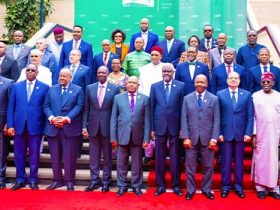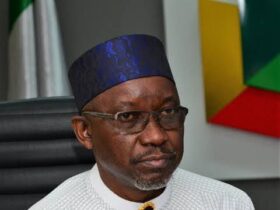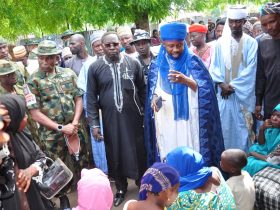The European Union Election Observation Mission (EU EOM) has presented its final report on the 2023 general elections to the Independent National Electoral Commission (INEC).
The EU EOM was received by INEC Chairman Mahmood Yakubu and the National Commissioners of the electoral body, according to a tweet by INEC.
Delivering its report on Tuesday in Abuja, the European Union Election Observer Mission to Nigeria during the 2023 general elections stated that the mission, which accredited a total of 110 observers from 25 EU Member States, as well as Norway, Switzerland, and Canada, had carried out its work between January 11 and April 11, on the invitation of INEC.
In its report, the EU EOM stated that it had identified six areas for improvement in Nigeria’s electoral process moving forward.
These areas are:
* Ambiguities in the law
* The establishment of a publicly accountable process for the selection of INEC members
* Ensuring real-time publication of results
* Access to election results
* Protection for media practitioners
* Discrimination against women in elective and appointed positions
* Impunity regarding electoral offences
The EU EOM Chief Observer, Mr Barry Andrews, said that the election exposed enduring systemic weaknesses and therefore signaled a need for further legal and operational reforms to enhance transparency, inclusiveness and accountability.
He further noted that there was a need for political will to achieve improved democratic practices in Nigeria and called for inclusive dialogue between all stakeholders on electoral reform.
The EU EOM’s report comes after a number of concerns were raised about the conduct of the 2023 general elections. These concerns included the late arrival of election materials, the disenfranchisement of voters, and the use of violence to disrupt the voting process.
Recall that the EU, in its report revealed on February 27, 2023, stated that the lack of transparency in the conduct of the 2023 general elections deflated public trust in INEC.
The EU EOM’s report is a significant step in the process of improving Nigeria’s electoral process. It is important that the recommendations made by the EU EOM are taken seriously by the Nigerian government and by all stakeholders in the electoral process.
Only by addressing the systemic weaknesses identified by the EU EOM can Nigeria ensure that its elections are free, fair, and credible.









Leave a Reply